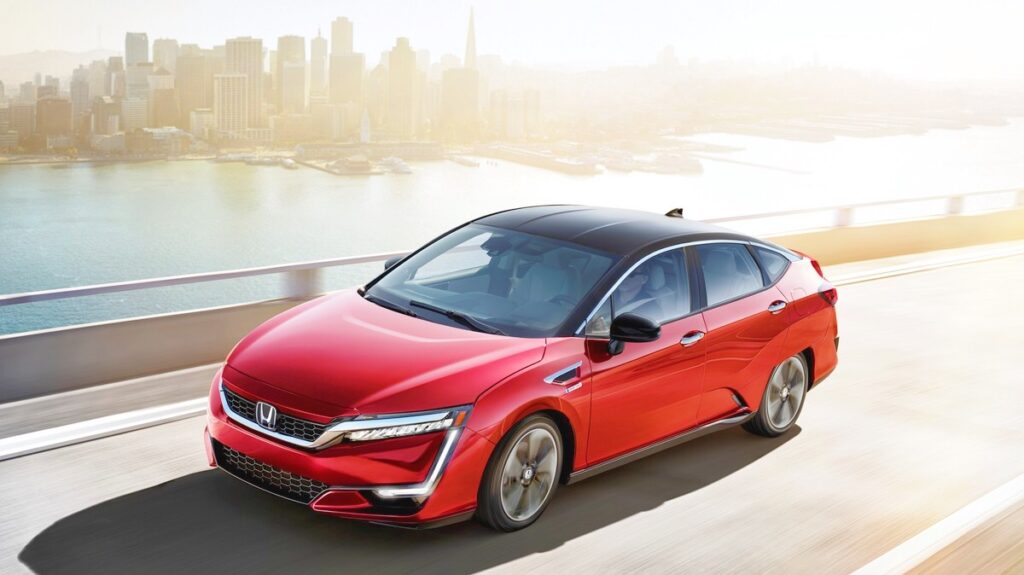Updated April 29, 2021. Honda just announced its goal of 100 percent electric car sales globally by 2040.
This will follow its 2030 and 2035 sales targets of 40 and 80 percent electrification, respectively, across all major markets. Honda will also launch a series of next generation electric vehicles based on a new e:Architecture (a completely new EV platform) between 2025 and 2030.
Due to regional differences such as acceptance level, existing infrastructure, and the availability of renewable technology, Honda plans to take a different approach to electrification in each market.
For example, the company is also aiming for the additional goal of 100 percent electric automobile sales in Japan by 2030 (including hybrid vehicles). The new plans are a key part of the company’s overall renewed commitment to advancing both environmental and safety technology in the coming years.

Honda aims for ‘zero environmental impact’
Honda President and Representative Director Toshihiro Mibe announced the new targets in a press conference last week.
He outlined the “three pillars” of Honda’s initiatives that will help the manufacturer realize “zero environmental impact” for all of its products — including their entire lifecycle and all corporate activities — by 2050. These include carbon neutrality, clean energy, and resource circulation (the minimization of consumption and waste).
Honda is currently working on improved reuse and recycling for batteries, as well as developing products from “100 percent sustainable” materials. It also plans to strive towards the electrification of the motorcycle industry, but will simultaneously work on increasing the efficiency of gasoline and biofuel engines for two-wheeled motor vehicles.
“My hope is to hear people saying, ‘we are glad Honda exists,’ or ‘Honda will definitely do it.’ Honda wants to continue to be a company that people want to exist. That is what we want to achieve,” said Mibe.
The company is also striving for zero auto and motorcycle collision fatalities involving Honda products by 2050 and will be introducing omnidirectional advanced driver-assistance systems (ADAS) and Honda Sensing technologies to all new automobiles by 2030.
Honda and electric cars
Honda has been the world’s largest producer of combustion engines since 1959, so such a large-scale move into EV technology is particularly significant. However, the Japanese vehicle manufacturer does already have a history of innovation alternative fuel space.
Back in 1999, Honda launched the first-ever natural gas vehicle (NGV) to be commercially available in the U.S., the Honda Civic GX. Later that same year, the manufacturer introduced the Honda Insight — the first hybrid electric car on the U.S. market. This was shortly followed by the iconic Prius (several years after its launch in Japan).
Last year the company launched the Honda E, a retro-styled vehicle positively received by customers and industry experts alike, even winning the Red Dot Design award in the automobile category.
The electric car industry is growing fast. Volvo recently announced that it would only sell EV vehicles by 2030, an update of its previous target of 50 percent electrification by 2025. Mercedes-Benz aims to produce electrified versions of all its cars by 2022, while Volkswagen has announced looser plans for an electrified range of some kind by 2030.
Ford plans to replace all its diesel vehicles with electric models by the same year, with an additional plan for 100 percent all-electric or plug-in hybrid commercial vehicles in Europe by 2024. Even Porsche is expanding its range of electric cars as part of its emissions reduction program, along with the full decarbonization of its entire supply chain.
“There is no long-term future for cars with an internal combustion engine,” says Henrik Green, Volvo’s chief technology officer.
Editor’s note: Since publication, this article has been corrected. Honda has now confirmed to LIVEKINDLY that the new electrification targets are in fact global, and not specific to North America.


